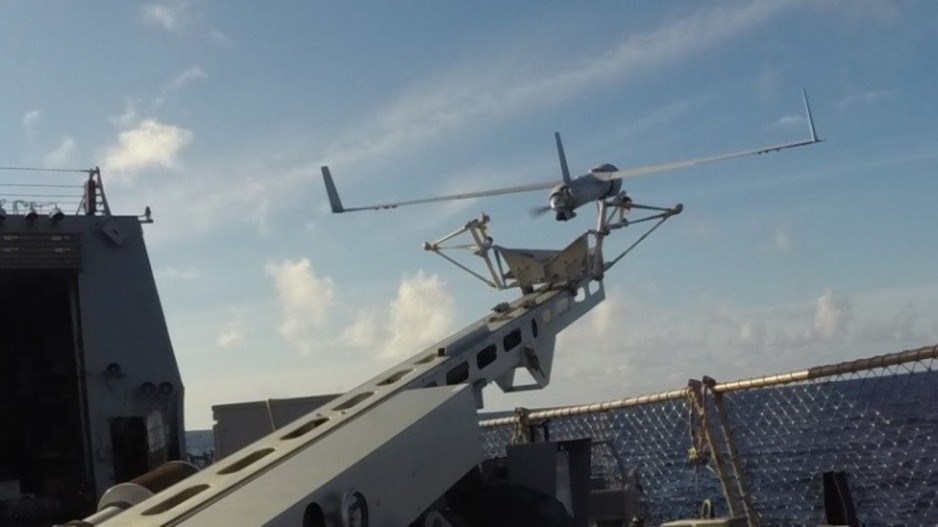What happened: B.C. fuel-cell company divests its drone assets
Why it matters: UAVs were meant to be a long-term play for Burnaby-based Ballard
Ballard Power Systems (TSX: BLDP) is letting its drone business fly off into the sunset.
The Burnaby-based company, best known for developing fuel-cell technology for heavy duty vehicles like buses, is selling off subsidiary Ballard Unmanned Systems Inc.’s intellectual property, inventory and equipment to Honeywell International Inc. (NYSE:HON).
Terms of the deal were not disclosed and Honeywell said there is no change to its third-quarter outlook as a result of the acquisition.
"We remain positive on the long-term outlook for fuel cell propulsion systems in the UAV [unmanned aerial vehicle] market. However, we determined to divest this non-core systems business given our strategic focus on the heavy- and medium-duty motive markets of bus, truck, train and marine,” Ballard CEO and president Randy MacEwen said in a Thursday (October 15) statement.
All employees at Massachusetts-based Ballard Unmanned Systems will transition to Honeywell Aerospace.
Ballard’s fuel-cell technology for drones had been tested for military purposes stretching back to at least five years.
In 2017, Boeing Company (NYSE: BA) subsidiary Insitu re-upped its contract to continue testing Ballard's fuel-cell system on its ScanEagle UAVs.
Insitu’s main customers for the ScanEagle drones include the U.S. Navy, the U.S. Marine Corps and the Australian Army.
The Canadian Army has also used the drones.
Honeywell Aerospace plans to use the technology for military drones as well as for commercial purposes.
Ballard Unmanned Systems was spun out of Protonex, which Ballard acquired in 2015.
Transitioning from battery-powered to fuel-cell drones offers advantages to operators that Ballard had been looking to tap into for years.
Battery-powered drones have a relatively short range, typically flying for about 30 minutes before they need recharging.
A fuel-cell drone can fly for about 90 minutes before it must be refuelled, Phil Robinson, vice-president and general manager of Ballard Unmanned Systems, told BIV last year.
That’s partly because, although they are bigger, they are lighter.
Guy McAree, Ballard’s director of investor relations, said in 2019 the company saw the drone business as a long-term investment.
“The UAV market is very much a future opportunity,” he told BIV.
“We don’t expect any significant revenue from this market in the near term. We’re really planning for significant growth, but a few years down the road. Five years from now, we think it’s going to be a really significant market opportunity.”
Ballard and Honeywell said they plan to continue collaborating on a broader array of aviation projects following the deal.
—With files from Nelson Bennett




